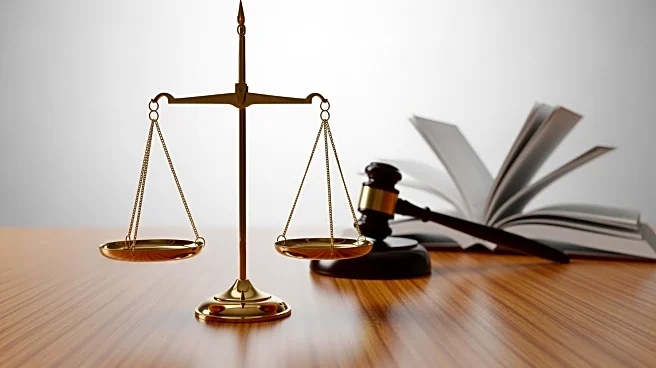What's Happening?
Supreme Court Justice Neil Gorsuch voiced concerns about granting presidents unlimited authority during a hearing on President Donald Trump's tariffs. Gorsuch, a Trump appointee, questioned the 'major
questions' and 'nondelegation' doctrines, asking Solicitor General D. John Sauer to define limits on executive power. The hearing focused on Trump's use of the International Emergency Economic Powers Act (IEEPA) to impose tariffs, with Gorsuch warning of a shift in power from Congress to the executive branch. The case challenges the administration's broad interpretation of IEEPA, which allows the president to address threats to national security, foreign policy, or the economy.
Why It's Important?
The case is crucial for understanding the boundaries of presidential authority in economic matters. A ruling against the Trump administration could limit the use of emergency powers for imposing tariffs, affecting trade policies and international relations. The decision may influence how future administrations interpret and apply emergency laws, potentially leading to changes in governance and policy. Businesses and consumers could experience shifts in pricing and market conditions based on the outcome, impacting economic stability and growth. The court's approach reflects broader concerns about executive overreach and the balance of power between branches of government.
What's Next?
The Supreme Court has yet to issue a ruling, with the decision expected to take weeks or months. If the court rules against the administration, it could lead to legal challenges and demands for tariff refunds, complicating financial and trade processes. The ruling may prompt legislative efforts to clarify the scope of presidential powers under emergency laws, potentially resulting in new regulations or amendments. Stakeholders, including businesses and trade organizations, are likely to react to the decision, influencing future policy discussions and economic strategies.
Beyond the Headlines
The case highlights the tension between executive power and congressional authority, raising questions about the balance of power in the U.S. government. The use of emergency powers for economic measures could lead to debates about the ethical and legal boundaries of such actions. The outcome may influence how future presidents approach trade and international economic policies, potentially reshaping U.S. engagement with global markets.









